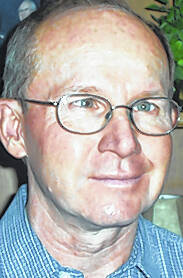A few years ago, when my mother in law, Ms. Micki, gave me a book to read about Walter Davis I was confused. Why would she want me to read a book about the former star University of North Carolina basketball player? Well, this Walter Davis did not play basketball, but he did have a lot to do with UNC. “The Walter Davis Story,” by Ned Cline, turned out to be interesting reading, even to this person who is not particularly fond of Carolina blue.
Walter Davis was born in 1920 in rural northeastern North Carolina. From humble beginnings, he would be booted out of two public high schools, before finally barely graduating from a military prep school. That he would become a multimillionaire owning corporations from Texas to the east coast would have surprised many.
How Davis got there is interesting. Through many twists and turns, including working at a Woolworth store in Fayetteville, he ended up in Midland, Texas. There he struck it rich in the oil transport business. Davis expanded into oil drilling, real estate and other businesses and by taking risks and hard work became rich.
As Davis prospered he never forgot his home and North Carolina. By the 1970’s, he was jetting back and forth between Midland and Manteo, on the Outer Banks, and was increasingly becoming more involved in North Carolina politics. He used his wealth during the latter part of the last century to help promote whatever causes he was interested in. Not big on ideology or political parties, he gave to whoever would help his causes, regardless of their political affiliation. Even though he was a registered Republican, Davis contributed more to North Carolina Democratic politicians because they were mostly in power at that time and could be of more assistance to him.
Davis would mentor and financially back Democrat Marc Basnight, also from Dare County, who would become president pro tem of the N.C. Senate in 1991. For over 15 years Basnight would be considered the most powerful person in the Legislature, and all important items would have to go through him and potentially through Davis.
Ironically, it was a Republican governor, Jim Holshouser, who appointed Davis to the UNC board of trustees in 1973, and opened the door for the beginning of Davis’ vast influence in N.C. politics. The appointment was in appreciation of a $10,000 cash contribution by Davis to help pay off Holhouser’s campaign debt. Davis had already poured much more in the campaign of his Democratic opponent, Skipper Bowles, during the election. Holshouser also appointed Davis to the Coastal Resources Commission.
His power and influence secured millions of tax dollars for UNC. Davis also personally gave a million dollars toward the construction on the Dean Smith Center on the campus of UNC, along with many other financial gifts to the university. So the Walter Davis Library, dedicated in 1985, was not named for the basketball player. He was also instrumental in state funding and policies for the coast and his other areas of interest.
How did he do it? According to the book, Davis had a suite at the Radisson Governor’s Inn near Raleigh for twenty five years. That would be his base of operation while the legislature was in session. Author Ned Cline, in the book, described the operation.
“It would be an exaggeration to say that as many legislative policies were decided at the Radisson Governor’s Inn as in the halls of the legislature, but maybe not by much. Davis met all comers at his self-established campaign and legislative headquarters, sometimes literally having officeholders lined up to obtain his counsel and, as needed, his campaign dollars.”
The book stated that many feel that Walter Davis had more influence on the North Carolina legislature than any other individual during the last three decades of the 20th century. But here’s what’s bothersome. Davis, who died in 2008, was not a legal resident of North Carolina until 2005. While he was influencing N.C. politics and politicians with his money, he kept his official residence back in Texas. Why? To me, as a former revenue officer, the most obvious answer is that, unlike North Carolina, Texas has no state income tax, which probably saved Davis millions during those years.
So the man who basically controlled the direction of millions of tax dollars in North Carolina over thirty years was not even a resident of the state for income tax purposes during that time. And you wonder why people are cynical about politics and government.
Mac McPhail, raised in Sampson County, lives in Clinton. McPhail’s new book, “Wandering Thoughts from a Wondering Mind,” a collection of his favorite columns, is available for purchase at the Sampson Independent office, online on Amazon, or by contacting McPhail at [email protected].

